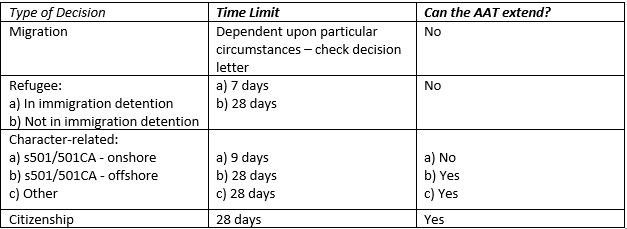Earlier last month we provided an initial consultation to a couple who had been refused their applications for citizenship (based on identity). As their refusal letters said they had 28 days to appeal the refusal decision to the Administrative Appeals Tribunal (AAT) they sought our advice and assistance with any possible next steps as it appeared they had missed an important deadline.
During the initial consultation and upon review of their documents and consideration of the circumstances that led to them missing the AAT deadline, we advised them that they were actually able to apply for an extension of time to make an application to the AAT. They engaged our services to apply for an extension of time, and ultimately, this was consented to by the Minister’s solicitors. We are pleased to say that they have current matters before the AAT and we are representing them in their appeal applications. Had they not booked in for that initial consultation, it is likely that they would have been none the wiser of their rights to appeal.
In saying that, an extension of time to appeal is not available for all types of applications to the AAT, and even when it is an option, it isn’t always guaranteed. Keep reading for further information and clarification….
Appealing to the AAT
When the government makes a decision, for example, to refuse to grant a visa or to cancel a visa, the decision can usually be appealed to the Administrative Appeals Tribunal (AAT). What this means is that the AAT is allowed to remake the decision. However, the AAT is only allowed to remake the decision if an application is made within a certain time frame. Most of the time, if an application for review is made to the AAT outside the time frame, the AAT is not legally allowed to remake the decision. This limits your options to change the government’s decision.
However, there are some circumstances in which the AAT can extend the time limit. It varies according to the type of immigration decision.
This table summarizes what your options are in relation to extending time deadlines. Generally, it is very important to lodge your applications within the required time frames. There is no guarantee that an application for an extension will be granted.
Migration Decision
If the Minister’s decision is a ‘migration’ decision, the time limits are very strict. A ‘migration’ decision is a decision to refuse or cancel a visa, a refusal to approve a nomination of an occupation, activity or position, a decision to bar, refuse to approve or cancel the approval of a sponsor, or a decision relating to a security.
The time limit to apply to the AAT differs on the type of decision, and whether you are in immigration detention. In the decision letter, which you should have received, the time limit for review is explicitly stated.
The AAT has no power to extend the time limit here. The time limit starts to run when you are taken to have received notice of the decision (generally when the letter was delivered). If the time limit expires, the AAT has no legal ability to review the decision.
Refugee Decisions
If the Minister’s decision relates to refugees, the time limits for review are also very strict. Refugee matters include decisions to refuse or cancel protection visas, decisions that a protection finding would no longer be made about a person,
The time limits for these decisions are very tight. If you are not in immigration detention, the deadline is 28 days. If you are in immigration detention, the time limit is 7 working days. The clock starts to run on the day you are taken to have received notice of the decision, if you are not in immigration detention. If you are in immigration detention, the clock start to run on the first working day you are taken to have received notice of the decision (so if you receive the decision on a Saturday, the clock starts to run on the Monday).
If the time limit expires, there is nothing the AAT can do. They have no power to extend the time limit.
Character-Related Decisions
Sometimes, visas are cancelled because of ‘character concerns.’ That means that the Minister has decided that you don’t pass the ‘character test.’ This allows the Minister to refuse or cancel any type of visa under s 501 (for more information on s501, see our upcoming s501 Information Kit). The Minister might refuse to undo a mandatory cancellation on the basis that you fail the character test. The Minister might also refuse a protection visa on character grounds. They might also cancel a business visa under s134. All of these types of decisions are reviewable by the AAT.
If you are in Australia, and the Minister has made a decision to refuse or cancel your visa under s501, or has made a decision to not revoke a mandatory cancellation under s501CA, there is a very tight time limit for review. The clock begins to run the day after you receive notice of the decision, and is 9 days long. The AAT has no power to extend this time limit – if the application for review is not lodged within this time, then there is no route for the AAT to appeal the matter.
Things are slightly more lenient if you are not in Australia. If you are outside Australia when the Minister makes a decision to refuse or cancel your visa under s501, or has made a decision to not revoke a mandatory cancellation under s501CA, then the time limit is 28 days after receiving notification of the decision. If the time limit expires, you can apply to have it extended!
For decisions to refuse a protection visa on character grounds other than s501, or for decisions to cancel a business visa under s134, the time limit is 28 days after receiving notification of the decision. Once again, if the time limit expires, you can apply to have it extended.
Citizenship Decisions
If the government has made a decision to refuse to approve a person becoming an Australian citizen, then this is usually reviewable by the AAT. It depends on the specific section of the Australian Citizenship Act 2007 that the government relied upon to refuse the citizenship application. Your decision letter should tell you whether you can apply to the AAT.
The AAT can review your decision if you apply within 28 days after you receive the decision from the Department of Home Affairs. However, if you miss the deadline, you can apply to the AAT to extend the time limit.
Writing to request an extension of time
When requesting an extension of the time limit, the reasons for why the application is late must be included. You can make the request for the extension in several ways. You can make the request when you make your application for review online, or you can fill in an ‘application for extension of time’ form when you send your ‘application for review of decision’ form in on paper, or you can write an email or letter.
The AAT then sends the application for an extension of time to the relevant government department, who can either agree to it or choose to contest it. If they choose to agree to it, then generally the application is granted. If they choose to contest the application, the AAT holds a hearing before determining whether to approve the application for an extension of time.
Conclusion
If you have missed a deadline to apply for review to the AAT, and after reading this blog feel that you may be able to request an extension of time, we would encourage you to seek legal advice as you may still have review rights despite missing the deadline set out in your refusal or cancellation letter.
Disclaimer: The contents do not constitute legal advice, are not intended to be a substitute for legal advice and should not be relied upon as such. You should seek legal advice or other professional advice in relation to any particular matters you may have. Information is correct as at 15.11.2021 and subject to change without notice.



